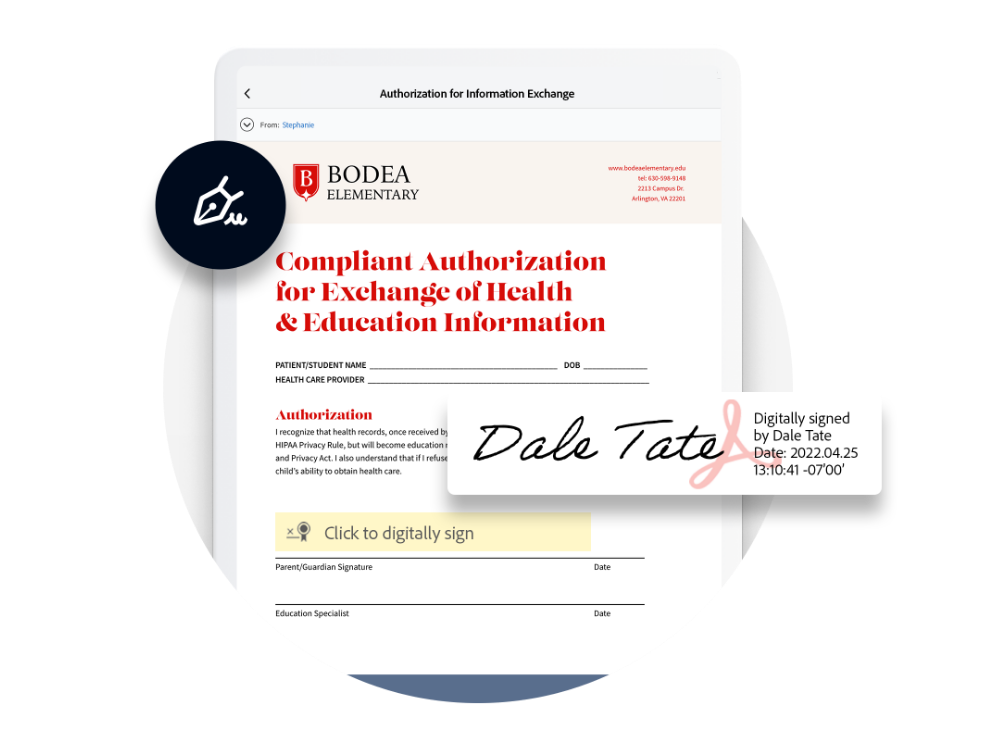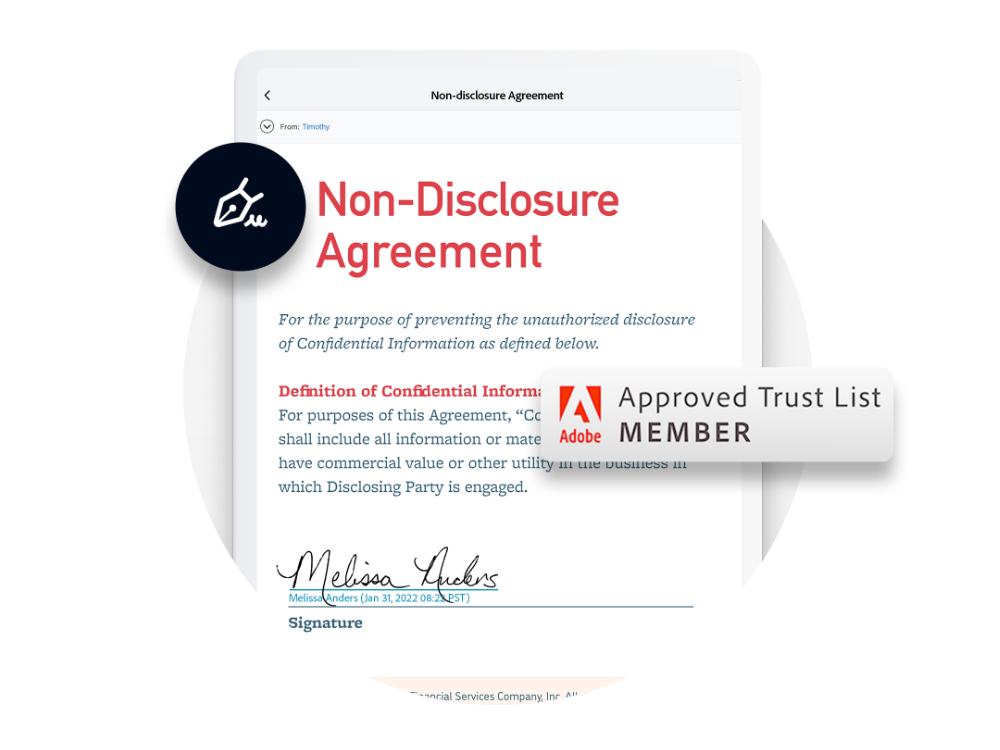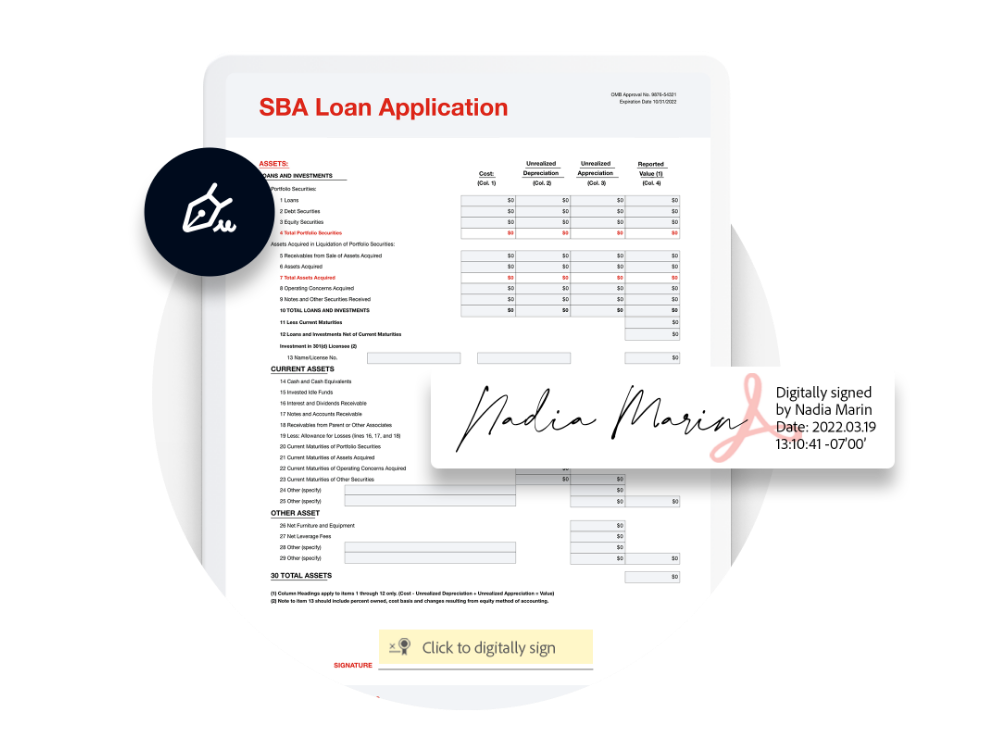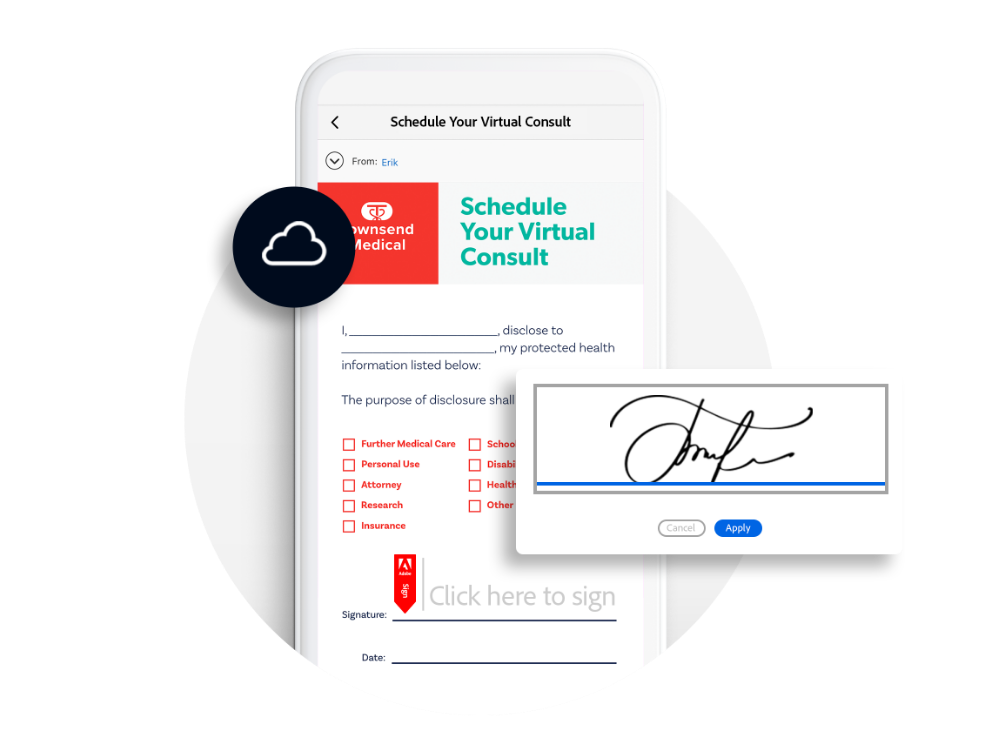Learn all about digital signatures. Watch video
Adobe Acrobat Sign
What’s a digital signature?
A digital signature is an e-signature that is backed by a digital certificate. Digital signatures comply with regulations around the world and provide the highest level of identity assurance when dealing with digital documents..
What are the benefits of digital signatures?

Trusted and compliant.
Digital signatures backed by digital certificates issued by third-party providers help you comply with regulations around the world.

Protected.
Your digital signature and the signed PDF electronic document are cryptographically bound and secured with a tamper-evident seal.

Unique to you.
Use your unique digital identity to easily validate your credentials and authorize your signature when you digitally sign.

Easy to validate.
Digital signature validation requires renewal -the signed document and digital signature are designed to be revalidated for at least 10 years.
Why are digital signatures secure?
A digital signature is a specific type of signature that is backed by a digital certificate, providing proof of your identity. Digital signatures are recognized as being a more secure type of e-signature because they’re cryptographically bound to the signed document and can be verified. When you use a digital certificate obtained from a trusted third party to e-sign, the resulting digital signature is virtually impossible to spoof. It also provides powerful evidence of signer identity, that the signed document was not altered, and that the signatures are valid.
What is a digital identity?
Similar to a passport in electronic form, a digital identity (or digital ID) provides strong evidence that you are who you say you are when e-signing a document. Each digital ID is backed by a digital certificate issued by a trusted third party, such as a bank or government, after thoroughly verifying your identity. Using a digital ID to authenticate your identity and apply a digital signature during the document signing process provides a higher level of assurance that you agreed to the terms listed and have authorized your signature on a specific document.
Try Adobe Acrobat Sign and grow your business with e-signatures.
See how easy it is for you, your customers, and co-workers to send and sign documents electronically — from any device or browser, from within just about any popular application. With Acrobat Sign, you can get important documents signed and delivered in minutes, not days.
Acrobat Sign: The Global e-signature solution for worldwide business

Compliant, legal e-signatures.
Whether you need a qualified electronic signature (QES) in the European Union, Switzerland, or the United Kingdom, or an e-KYC compliant signature in India, Acrobat Sign helps you create enforceable e-signatures around the world.

A broad ecosystem of trusted identity experts.
Acrobat Sign is backed by a global network of local trust services and identity providers. You have the freedom to choose from hundreds of certificate authorities, time stamp providers, and trust service providers (TSPs) available on the Adobe Approved Trust List (AATL) You can also choose TSPs from the EU Trusted Lists (EUTLs) and local digital identity schemes to create legal, trusted e-signatures.

A flexible, standards-based solution.
You can select the right type of e-signature for any use case and every signer — from simple e-signatures to e-signatures with strong identification, to highly secure and regulated digital signatures in the cloud. Based on open standards and backed by local, trusted identity verification, Acrobat Sign gives you maximum flexibility in a single global solution.
Visit the Adobe Trust Center to see a list of all Adobe compliance certifications, standards, and regulations.

Secure, flexible digital signatures in the cloud.
Flexibility meets security with our cloud signatures — the first digital signature in the cloud that’s based on the Cloud Signature Consortium global open standard. Using a cloud signature, you can apply a highly secure digital signature backed by identification from a trusted third party, directly from your mobile phone.
Want to know more?
Whether you need some basic information about our solutions or you’d like a customized quote for your unique business needs, we’re here to help you get your questions answered.